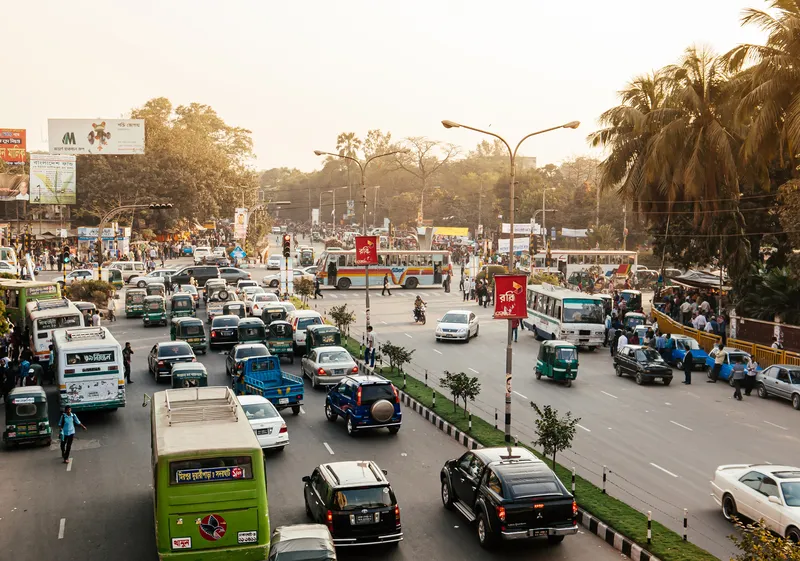The European Bank for Reconstruction and Development (EBRD) is providing a senior loan of US$44.5 million to finance the modernisation of Kosovo’s railway infrastructure, deepening regional integration and strengthening the country’s economic development.
The loan to Infrastruktura e Hekurudhave të Kosovës (Infrakos), the national railway infrastructure company, will provide funding to upgrade Kosovo’s only international rail link, Rail Route 10. The 148 kilometre-long line is divided into three section
September 7, 2015
Read time: 3 mins
The European Bank for Reconstruction and Development (EBRD) is providing a senior loan of US$44.5 million to finance the modernisation of Kosovo’s railway infrastructure, deepening regional integration and strengthening the country’s economic development.
The loan to Infrastruktura e Hekurudhave të Kosovës (Infrakos), the national railway infrastructure company, will provide funding to upgrade Kosovo’s only international rail link, Rail Route 10. The 148 kilometre-long line is divided into three sections: the southern section Fushë Kosovë -FYR Macedonian border; the central section Fushë Kosovë-Mitrovicë; and the northern section Mitrovicë -Serbian border. The proceeds of the loan will be used to rehabilitate and modernise these sections in separate stages.
Alongside the EBRD’s loan, the European Investment Bank is also contributing to the project. The project also benefits from significant donor support with investment grants provided by the European Union and grants for project preparation and implementation from the Western Balkans Investment Framework.
This is the largest EBRD transaction in Kosovo to date and the Bank’s first investment in the country’s transport sector. The project will improve the connection between Kosovo’s railway network and the European network through Corridor VIII and Corridor X in FYR Macedonia in the south of the country and the Serbian border in the north.
The modernisation of transport infrastructure is one of the EBRD’s key priorities in the Western Balkans, helping to improve trade routes within the region and develop stronger cross-border cooperation.
The Kosovo Rail Route 10 project is part of the Western Balkans core railway network, an extension of the Trans-European Transport Networks, which is part of a wider European Union agenda to promote transport connectivity in the region.
Through project implementation the EBRD will also support the improvement of asset management practices, track access charges and equal opportunities, with particular emphasis on workforce diversity and gender equality.
EBRD First Vice President Phil Bennett said: “A well-developed and modern transport infrastructure is critical for achieving sustainable economic growth. We are proud to have Kosovo’s Rail Route 10 as our first transport project in the country. The rehabilitation of Kosovo’s only international rail link is vital for the country’s further integration into regional and international markets. Improved transport links will greatly contribute to enhanced regional and pan-European trade and cooperation.”
“This is a high priority project for Kosovo as the modernisation of Rail Route 10 will bring multiple political and economic benefits to the country. It is a very important step towards improving national and international trade links and enhancing the efficiency and quality of passenger and cargo transit,” added Avdullah Hoti, Kosovo’s Minister of Finance, at the signing at the EBRD Headquarters in London.
The loan to Infrastruktura e Hekurudhave të Kosovës (Infrakos), the national railway infrastructure company, will provide funding to upgrade Kosovo’s only international rail link, Rail Route 10. The 148 kilometre-long line is divided into three sections: the southern section Fushë Kosovë -FYR Macedonian border; the central section Fushë Kosovë-Mitrovicë; and the northern section Mitrovicë -Serbian border. The proceeds of the loan will be used to rehabilitate and modernise these sections in separate stages.
Alongside the EBRD’s loan, the European Investment Bank is also contributing to the project. The project also benefits from significant donor support with investment grants provided by the European Union and grants for project preparation and implementation from the Western Balkans Investment Framework.
This is the largest EBRD transaction in Kosovo to date and the Bank’s first investment in the country’s transport sector. The project will improve the connection between Kosovo’s railway network and the European network through Corridor VIII and Corridor X in FYR Macedonia in the south of the country and the Serbian border in the north.
The modernisation of transport infrastructure is one of the EBRD’s key priorities in the Western Balkans, helping to improve trade routes within the region and develop stronger cross-border cooperation.
The Kosovo Rail Route 10 project is part of the Western Balkans core railway network, an extension of the Trans-European Transport Networks, which is part of a wider European Union agenda to promote transport connectivity in the region.
Through project implementation the EBRD will also support the improvement of asset management practices, track access charges and equal opportunities, with particular emphasis on workforce diversity and gender equality.
EBRD First Vice President Phil Bennett said: “A well-developed and modern transport infrastructure is critical for achieving sustainable economic growth. We are proud to have Kosovo’s Rail Route 10 as our first transport project in the country. The rehabilitation of Kosovo’s only international rail link is vital for the country’s further integration into regional and international markets. Improved transport links will greatly contribute to enhanced regional and pan-European trade and cooperation.”
“This is a high priority project for Kosovo as the modernisation of Rail Route 10 will bring multiple political and economic benefits to the country. It is a very important step towards improving national and international trade links and enhancing the efficiency and quality of passenger and cargo transit,” added Avdullah Hoti, Kosovo’s Minister of Finance, at the signing at the EBRD Headquarters in London.








